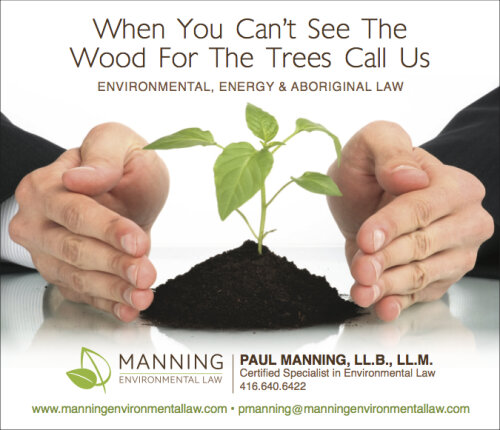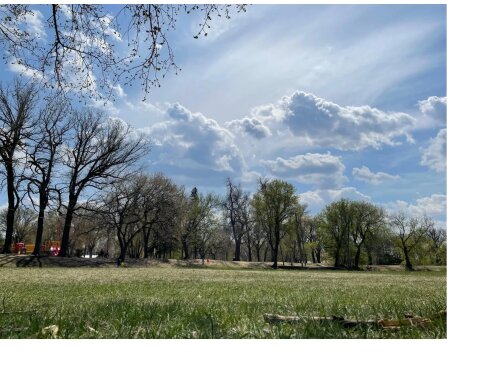Best Renewable & Alternative Energy Lawyers in Toronto
Share your needs with us, get contacted by law firms.
Free. Takes 2 min.
List of the best lawyers in Toronto, Canada
About Renewable & Alternative Energy Law in Toronto, Canada
Renewable and alternative energy law in Toronto refers to the regulations, policies, and legal frameworks that govern the development, generation, distribution, and use of clean energy sources. These resources include solar, wind, hydroelectric, geothermal, and biomass energy. As Toronto pushes toward a sustainable future, the city and province encourage projects that reduce greenhouse gas emissions and promote green technologies. However, these initiatives are subject to a complex set of rules, permits, and incentives that operate at municipal, provincial, and federal levels. Understanding how the law shapes the renewable energy landscape is crucial for homeowners, businesses, developers, and investors considering new or expanded energy projects.
Why You May Need a Lawyer
Legal support is often essential in the renewable and alternative energy sector due to its regulatory complexity and fast pace of growth. Common situations where people may need legal assistance include:
- Securing permits and approvals for solar panel installations or wind turbines on residential, commercial, or industrial properties
- Navigating land use, zoning, and building code issues related to renewable energy systems
- Drafting, reviewing, or negotiating contracts with energy suppliers, government bodies, or builders
- Accessing funding, grants, or incentives for clean energy projects
- Resolving disputes with neighbours, utilities, or contractors regarding the impact or operation of renewable energy systems
- Ensuring compliance with local, provincial, and federal regulations
- Participating in community or cooperative energy generation projects
With the evolving nature of the energy sector, a knowledgeable lawyer can help you avoid costly mistakes and secure your legal rights throughout every phase of your project.
Local Laws Overview
The legal landscape for renewable and alternative energy in Toronto is shaped by multiple authorities. Key aspects include:
- Municipal Bylaws: Toronto’s Green Energy Bylaws influence what types of energy systems can be installed and where. These rules often address setbacks, size limits, and design requirements for renewable energy components.
- Building Codes: The Ontario Building Code has specific standards for solar panels, wind turbines, and other energy installations to ensure safety and efficiency.
- Provincial Legislation: Ontario’s Environmental Protection Act, Green Energy Act (now partially repealed but still relevant in some contexts), and the Electricity Act regulate everything from environmental approvals to grid connection and energy sale agreements.
- Federal Regulations: Resources such as Natural Resources Canada provide guidance on energy efficiency and renewable energy incentives. The Canadian Environmental Assessment Act may also apply to large-scale projects.
- Permits and Approvals: Most projects require permits from the City of Toronto and potentially other agencies, especially if the installation may impact neighbours, local wildlife, or infrastructure.
- Net Metering and Incentives: Programs allow homeowners and businesses to supply excess electricity to the grid for credits, but strict eligibility and technical requirements apply.
Because regulations can change quickly and vary by location and project type, checking with a lawyer familiar with Toronto’s renewable and alternative energy laws is recommended.
Frequently Asked Questions
What counts as renewable or alternative energy in Toronto?
Renewable energy includes resources that regenerate naturally, such as solar, wind, hydroelectric, geothermal, and biomass. Alternative energy refers to non-traditional sources that reduce reliance on fossil fuels but may not all be sustainable in the long-term. Both are encouraged in Toronto’s climate and energy plans.
Do I need a permit to install solar panels on my home?
Yes, in most cases you need permits from the City of Toronto. Approvals are required to ensure that installations meet safety, zoning, and building code standards.
Can I sell electricity back to the grid in Toronto?
Through Ontario’s net metering program, qualifying homeowners and businesses can send surplus electricity generated from renewable sources to the local grid for credits on their electricity bills, subject to eligibility and system capacity.
What financial incentives exist for renewable energy in Toronto?
Incentives may include federal and provincial grants, rebates, or tax credits for certain types of installations. These programs change frequently and may have specific eligibility requirements.
Are there special zoning rules for installing wind turbines?
Yes, Toronto’s zoning bylaws regulate the placement and size of wind turbines. Proposals must adhere to setback distances, noise limits, and other safety considerations.
Can my condominium or apartment building install renewable energy systems?
Yes, but approval from your condominium board or landlord may be required, along with municipal permits. Legal counsel can help navigate rights and obligations for multi-unit buildings.
Do renewable energy projects face environmental assessments?
Large-scale renewable energy projects may require environmental assessments under provincial or federal laws, particularly if they could impact local ecosystems.
Can I join or start a community energy project?
Community or cooperative renewable energy projects are allowed, but they must follow specific legal rules for incorporation, financing, and grid connection. Legal advice is recommended.
What risks should I consider before starting a renewable energy project?
Risks can include regulatory delays, construction disputes, connection challenges, and fluctuating incentive programs. A lawyer can help identify and mitigate these issues.
How do I resolve a dispute related to a renewable energy project?
Disputes with neighbours, contractors, or utilities may arise. You may be able to resolve issues through negotiation, mediation, or formal legal action. Early legal advice can help protect your interests and promote timely resolution.
Additional Resources
If you are seeking information or assistance regarding renewable and alternative energy law in Toronto, consider reaching out to the following organizations and resources:
- Ministry of Energy, Ontario
- City of Toronto - Environment & Energy Division
- Ontario Energy Board
- Natural Resources Canada
- Toronto Atmospheric Fund
- Canadian Solar Industries Association and Canadian Wind Energy Association
- Local community legal clinics and environmental law associations
Each of these resources can provide information about permitting, incentives, funding opportunities, regulations, and general guidance.
Next Steps
If you are considering a renewable or alternative energy project, or if you need to resolve a legal issue involving energy systems, here is how you can proceed:
- Document your plans and gather all relevant property details, technical specifications, and any communications with authorities or companies.
- Contact a lawyer with experience in renewable and alternative energy law in Toronto to discuss your case or project. Many offer initial consultations to assess your needs and outline your legal options.
- Stay informed about changes in municipal and provincial regulations, as renewable energy laws evolve quickly.
- Engage with local organizations or advisory bodies for additional support and to seek referrals to reputable legal professionals.
- Be proactive in addressing potential legal challenges, especially those related to property rights, regulatory compliance, and contract negotiations.
Proper legal guidance can ensure your project complies with all regulations and maximizes available opportunities for cost savings and future growth.
Lawzana helps you find the best lawyers and law firms in Toronto through a curated and pre-screened list of qualified legal professionals. Our platform offers rankings and detailed profiles of attorneys and law firms, allowing you to compare based on practice areas, including Renewable & Alternative Energy, experience, and client feedback.
Each profile includes a description of the firm's areas of practice, client reviews, team members and partners, year of establishment, spoken languages, office locations, contact information, social media presence, and any published articles or resources. Most firms on our platform speak English and are experienced in both local and international legal matters.
Get a quote from top-rated law firms in Toronto, Canada — quickly, securely, and without unnecessary hassle.
Disclaimer:
The information provided on this page is for general informational purposes only and does not constitute legal advice. While we strive to ensure the accuracy and relevance of the content, legal information may change over time, and interpretations of the law can vary. You should always consult with a qualified legal professional for advice specific to your situation.
We disclaim all liability for actions taken or not taken based on the content of this page. If you believe any information is incorrect or outdated, please contact us, and we will review and update it where appropriate.

















